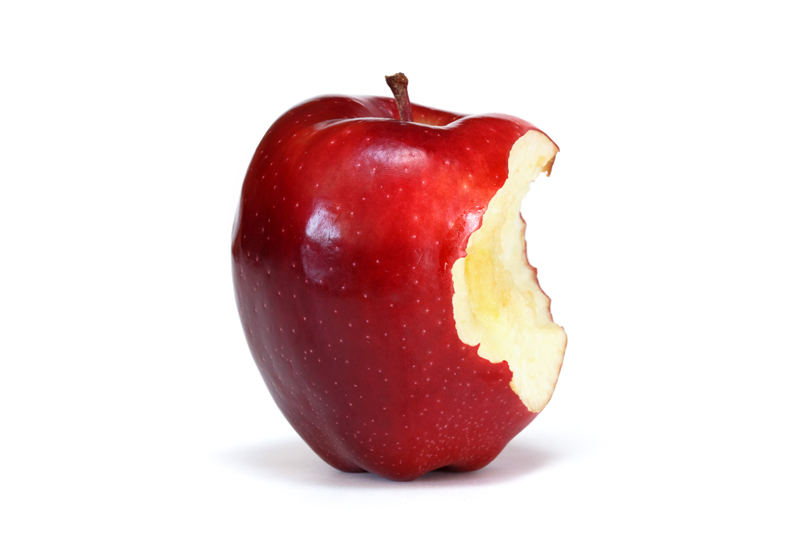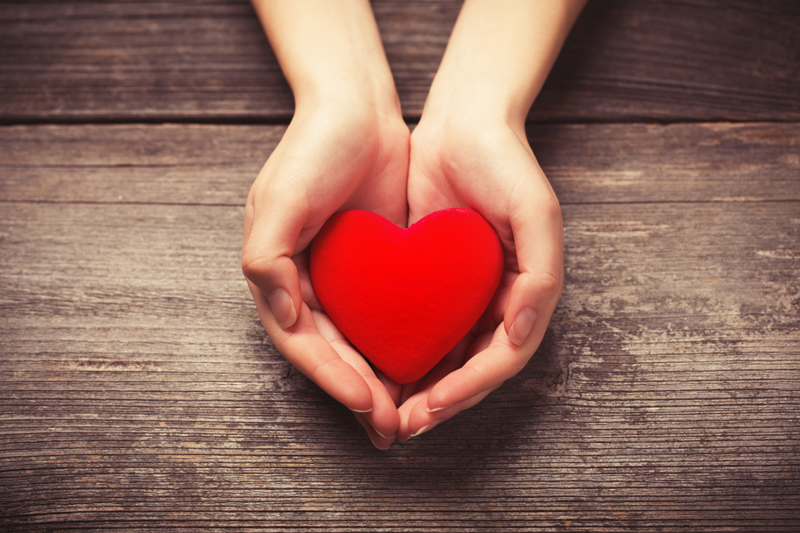Traditional Chinese Medicine

Traditional Chinese Medicine (TCM) is a complete medical system that has been used to diagnose, treat, and prevent illnesses for more than 2,000 years. TCM is based on a belief in yin and yang—defined as opposing energies, such as earth and heaven, winter and summer, and happiness and sadness. When yin and yang are in balance, you feel relaxed and energized. Out of balance, however, yin and yang negatively affect your health.
Practitioners also believe that there is a life force or energy in every body, known as qi (pronounced "chee"). In order for yin and yang to be balanced and for the body to be healthy, qi must be balanced and flowing freely. When there's too little or too much qi in one of the body's energy pathways (called meridians), or when the flow of qi is blocked, illness results.
The ultimate goal of TCM treatment is to balance the yin and yang in our lives by promoting the natural flow of qi. In an interesting analogy, often used to explain its nature, qi is described as the wind in a sail; we do not see the wind directly, but we are aware of its presence as it fills the sail.
The first writings about TCM date back to 200 B.C.E. Herbal medicine and acupuncture, including theory, practice, diagnosis, and treatment, were recorded in classical Chinese texts and refined over many centuries.
The practice of TCM stayed in Asia for centuries. Chinese immigrants had been practicing TCM in the United States since the mid-19th century, but its existence was unknown to most Americans before 1971. That year, New York Times reporter James Reston, who was in China covering former President Nixon's trip, had to have an emergency appendix operation. After the operation he received acupuncture for pain, and his stories about this experience with TCM fascinated the public. Since then, TCM has gone on to become a mainstream alternative medicine practiced all over the world.
How TCM works
Disease (alterations in the normal flow of qi such that yin and yang are imbalanced) is thought to have three major causes: external or environmental factors, your internal emotions, and lifestyle factors such as diet. Through the use of its therapeutic modalities, TCM stimulates the body's own healing mechanisms. Practices used in TCM include:
*Acupuncture and acupressure
*Moxibustion (burning an herb near the skin)
*Herbal medicine
*Nutrition
*Chinese massage (called tui na)
*Exercise (such as tai chi and qi gong which combine movement with meditation)
In TCM, the body's internal organs are not thought of as individual structures, but as complex networks. According to TCM, there are five organ systems (kidney, heart, spleen, liver, and lung) through which qi flows via meridians. Despite their specific names, these five systems correspond to more than individual body parts. The kidney, for example, represents the entire urinary system along with the adrenal glands that sit a top of the kidneys. The heart represents both the heart and the brain.
Health condition TCM is good for
Over the centuries, TCM has been used to treat countless conditions. Western scientists are still studying its effectiveness for various diseases. Some of the conditions for which TCM is known to be particularly helpful include:
*Obesity
*Diabetes and its complications such as retinopathy (damage to the retina located in the back of the eye)
*High cholesterol
*Male and female fertility disorders
*Alzheimer's disease
*Digestive disorders (such as irritable bowel syndrome)
*Recurrent cystitis (inflammation of the bladder)
TCM may also be an effective treatment for the following ailments
*Allergies
*Sinusitis
*Addictions
*Pain (including childbirth and abdominal)
*Menopausal symptoms
*Osteoporosis
*Arthritis
*Infections (respiratory, bladder, vaginal)
*Sleep disorders
*Stress
*Constipation
What to expect on a visit to a TCM practitioner
The TCM practitioner will ask you questions about your medical history and conduct a physical exam to look for signs of imbalance. He or she will examine your skin, tongue, and hair, as well as other parts of your body (from the brightness of your eyes to the color of your nails), and will check six pulses on each of your wrists. The practitioner will also listen to your voice to assess your shen (spirit), and will work to determine if one or more of your organ networks are affected. He or she will then try to correct any imbalances in your body by providing a combination of the therapies discussed above.
To locate a qualified practitioner in your area, contact:
The American Association of Oriental Medicine or 888-500-7999
The National Certification Commission for Acupuncture and Oriental Medicine, or 703-548-9004
The national Acupuncture and Oriental Medicine Alliance, or 253-851-6896
The Institute of Traditional Medicine, or 503-233-4907
Practitioners also believe that there is a life force or energy in every body, known as qi (pronounced "chee"). In order for yin and yang to be balanced and for the body to be healthy, qi must be balanced and flowing freely. When there's too little or too much qi in one of the body's energy pathways (called meridians), or when the flow of qi is blocked, illness results.
The ultimate goal of TCM treatment is to balance the yin and yang in our lives by promoting the natural flow of qi. In an interesting analogy, often used to explain its nature, qi is described as the wind in a sail; we do not see the wind directly, but we are aware of its presence as it fills the sail.
The first writings about TCM date back to 200 B.C.E. Herbal medicine and acupuncture, including theory, practice, diagnosis, and treatment, were recorded in classical Chinese texts and refined over many centuries.
The practice of TCM stayed in Asia for centuries. Chinese immigrants had been practicing TCM in the United States since the mid-19th century, but its existence was unknown to most Americans before 1971. That year, New York Times reporter James Reston, who was in China covering former President Nixon's trip, had to have an emergency appendix operation. After the operation he received acupuncture for pain, and his stories about this experience with TCM fascinated the public. Since then, TCM has gone on to become a mainstream alternative medicine practiced all over the world.
How TCM works
Disease (alterations in the normal flow of qi such that yin and yang are imbalanced) is thought to have three major causes: external or environmental factors, your internal emotions, and lifestyle factors such as diet. Through the use of its therapeutic modalities, TCM stimulates the body's own healing mechanisms. Practices used in TCM include:
*Acupuncture and acupressure
*Moxibustion (burning an herb near the skin)
*Herbal medicine
*Nutrition
*Chinese massage (called tui na)
*Exercise (such as tai chi and qi gong which combine movement with meditation)
In TCM, the body's internal organs are not thought of as individual structures, but as complex networks. According to TCM, there are five organ systems (kidney, heart, spleen, liver, and lung) through which qi flows via meridians. Despite their specific names, these five systems correspond to more than individual body parts. The kidney, for example, represents the entire urinary system along with the adrenal glands that sit a top of the kidneys. The heart represents both the heart and the brain.
Health condition TCM is good for
Over the centuries, TCM has been used to treat countless conditions. Western scientists are still studying its effectiveness for various diseases. Some of the conditions for which TCM is known to be particularly helpful include:
*Obesity
*Diabetes and its complications such as retinopathy (damage to the retina located in the back of the eye)
*High cholesterol
*Male and female fertility disorders
*Alzheimer's disease
*Digestive disorders (such as irritable bowel syndrome)
*Recurrent cystitis (inflammation of the bladder)
TCM may also be an effective treatment for the following ailments
*Allergies
*Sinusitis
*Addictions
*Pain (including childbirth and abdominal)
*Menopausal symptoms
*Osteoporosis
*Arthritis
*Infections (respiratory, bladder, vaginal)
*Sleep disorders
*Stress
*Constipation
What to expect on a visit to a TCM practitioner
The TCM practitioner will ask you questions about your medical history and conduct a physical exam to look for signs of imbalance. He or she will examine your skin, tongue, and hair, as well as other parts of your body (from the brightness of your eyes to the color of your nails), and will check six pulses on each of your wrists. The practitioner will also listen to your voice to assess your shen (spirit), and will work to determine if one or more of your organ networks are affected. He or she will then try to correct any imbalances in your body by providing a combination of the therapies discussed above.
To locate a qualified practitioner in your area, contact:
The American Association of Oriental Medicine or 888-500-7999
The National Certification Commission for Acupuncture and Oriental Medicine, or 703-548-9004
The national Acupuncture and Oriental Medicine Alliance, or 253-851-6896
The Institute of Traditional Medicine, or 503-233-4907
You Should Also Read:
SHIATSU
Tai Chi, The Dance of Life

Related Articles
Editor's Picks Articles
Top Ten Articles
Previous Features
Site Map
Content copyright © 2023 by Victoria Abreo. All rights reserved.
This content was written by Victoria Abreo. If you wish to use this content in any manner, you need written permission. Contact Victoria Abreo for details.



